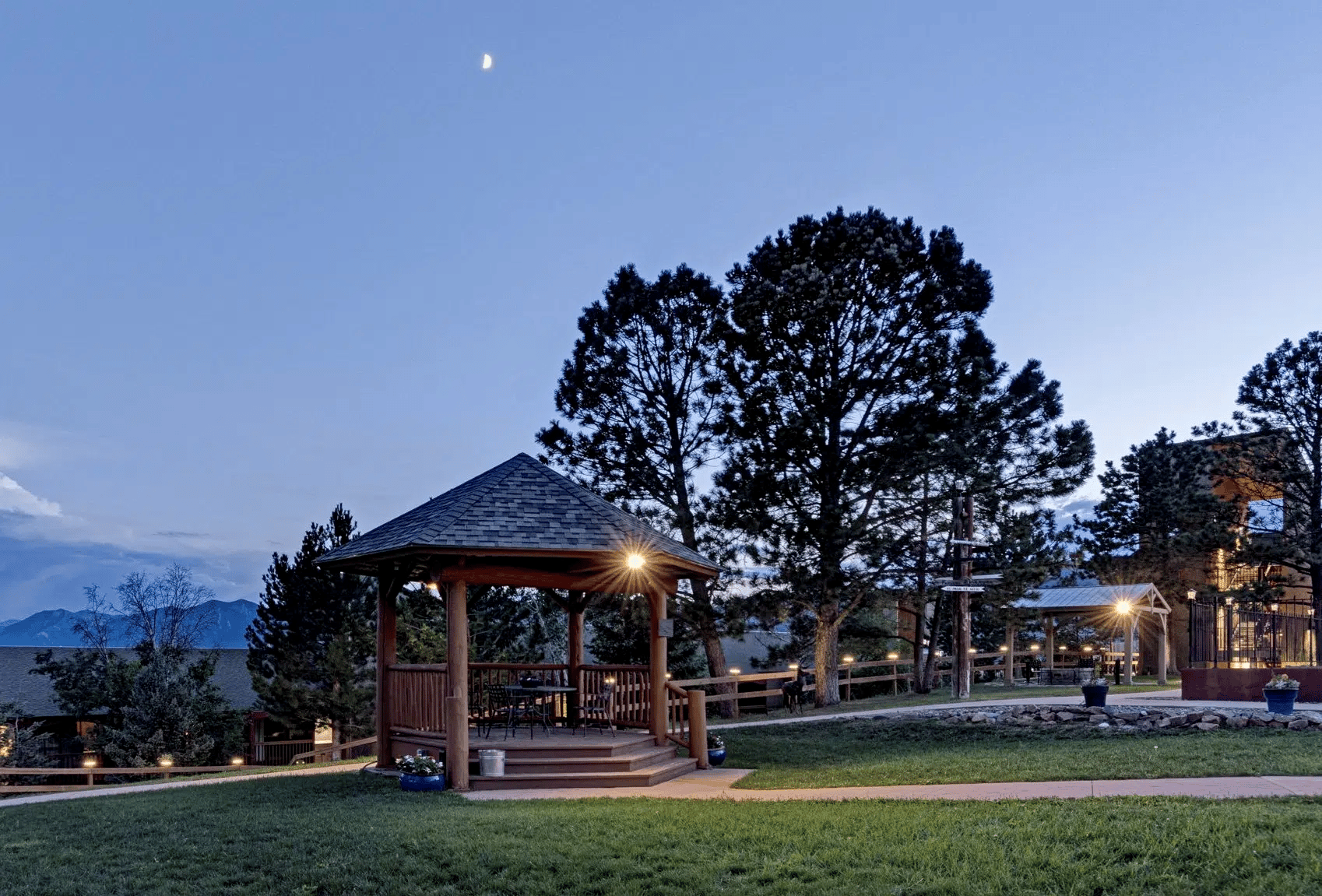
Mountain Springs Recovery - Monument, Colorado
GET HONEST & ACCURATE QUOTE
Dual Diagnosis in Aurora, Colorado
Upscale Colorado facility with medication assisted treatment and Non-12-Step program options
- Keep your phone and laptop
- Safe 24/7 monitored detox
- SMART options
- Dual diagnosis programs
- Long-term arrangements
- Thorough aftercare planning
- Located in Monument, CO
- Out of state options in CA, TX and IL
Check your coverage and get informed on admission process! Call us at:
 555-555-5555*
555-555-5555*
*HIPPA Compliant and 100% confidential
MAXIMIZE YOUR PPO COVERAGE WITH OUR HELP
We will work with insurance to get you the best possible coverage and minimize expenses.
Aurora, Colorado Dual Diagnosis Treatment
Aurora is a bustling suburb of Denver, Colorado, and a great place to live and work if you want to be close to the city but not necessarily right in the middle of it. There are hundreds of restaurants, activities, retail outlets, and so much more for residents and visitors to enjoy.
Aurora’s proximity to city amenities and the outdoor beauty and relaxation Colorado offers make it ideal for dual diagnosis treatment. Many people struggling with substance use disorders have underlying mental health conditions that drive the desire to self-medicate or escape. For these individuals, dual diagnosis treatment is an excellent option with a high success rate.
Addiction Statistics in Aurora, Colorado
Denver is used frequently by drug traffickers and cartels as a distribution point for the region. Nearly 70% of the entire state’s population reside in the 10 counties surrounding Denver and Pueblo to the south, making illicit substances widely available to many people.
According to the U.S. National Drug Intelligence Center, in 2001, there were 13,039 addiction treatment admissions in Colorado. This figure represents a significant increase from the total number of addiction treatment admissions in the state in 1997, which was 11,757.
The prevalence of addiction in Colorado and, more specifically, the Denver-Aurora metropolitan area is expected to increase in the wake of the COVID-19 pandemic as drug use, and mental illness rates soar.
Dual Diagnosis in Aurora, Colorado
The National Library of Medicine defines dual diagnosis as the diagnosis of both substance use disorder and a mental health condition like anxiety, depression, bipolar disorder, or trauma disorder. Dual diagnosis treatment recognizes that for the patient to successfully overcome their struggles with addiction, their mental health also needs to be treated concomitantly.
It’s important for patients who need dual diagnosis treatment to have support resources for both addiction and mental illness. Patients who receive support for only one or the other typically get into a difficult cycle of addiction and relapse as they continue to get better and then worse as one condition feeds into the other.
What to Look for in Dual Diagnosis in Aurora, Colorado
Seeking treatment for addiction and mental health at the same time can be intimidating. There are many different options for dual diagnosis rehab in Aurora, Colorado, which you choose is highly dependent upon your individual needs.
Some things to look for in a treatment facility include:
- Individual therapy
- Family therapy
- Grief counseling
- Eating disorder treatment
- Mental health treatment
- Behavioral health services
- Alcohol addiction treatment
- Opioid addiction treatment
- Benzodiazepine addiction treatment
- Trauma therapy
- Eye Movement Desensitization & Reprocessing (EMDR) treatment
- Cognitive Behavioral Therapy (CBT)
- Dialectical Behavioral Therapy (DBT)
- Holistic addiction treatment
- Art therapy
- Equine therapy
- Music therapy
- Massage therapy
- Eco-therapy
- Gardening
- Yoga
- Acupuncture
- Meditation
How to Choose Dual Diagnosis Addiction Treatment In Aurora, Colorado
Make a list of the most important amenities to you in a rehab facility, ideally from most to least important. Separately, make a list of dealbreakers that would make a facility no longer an option. Then, look for treatment centers with none of your dealbreakers and as many of the amenities, you want as possible.
Types of Dual Diagnosis Rehab in Aurora
Standard Addiction Treatment
Standard addiction treatment is the most widely available and includes amenities like cafeteria access, one-on-one and group counseling, private or shared rooms, and exercise facilities.
High-End Addiction Treatment
High-end addiction treatment centers in Aurora offer higher-quality versions of standard amenities, like gourmet meals and well-kept grounds with multiple activities to engage in alone or in groups.
Luxury Addiction Treatment
Luxury addiction treatment includes perks not available at traditional rehab facilities like massage, horseback riding, private suites, and chef-made meals. Residents often have access to pools, hot tubs, saunas, and multiple enrichment classes.
Executive Addiction Treatment
Executive addiction treatment is usually high-end or luxury and has specific accommodations for CEOs and other executive-level individuals who need to work during treatment. These facilities have meeting rooms, conference lines, computer labs with printers, and other amenities to help professionals stay on track at work while undergoing treatment.
What to Expect During Dual Diagnosis at Aurora, Colorado
Knowing what to expect at an addiction treatment center can take away some of the fear or anxiety around going. You can begin to prepare for what’s ahead and think about what you can bring from home to make your treatment a little easier. At a dual diagnosis facility, you can expect the following:
Assessment
When you arrive at the treatment center, you will be assessed by a staff member who will complete a comprehensive medical examination and health history questionnaire. This will be used to determine if you need detox and what treatment plan would be best suited for your needs.
Detox
Many patients receiving drug and alcohol treatment need to undergo detox. This is a period of time lasting about 7-10 days where patients are continuously monitored and administered medication to help make them comfortable while their bodies withdraw from substances. This is the most difficult part of treatment for many patients, and it’s important to have good medical support during this time.
Treatment
The treatment phase of your rehabilitation program is the longest and can last one, two, or three months depending on what the facility recommends following your assessment. Treatment begins when detox ends and is the stage where you will do the bulk of the work on yourself.
You’ll attend therapy, join group counseling, and engage with various amenities the program you selected offers. Your treatment team will work closely with you to ensure you have access to the support you need for recovery throughout your stay at the facility and will only transition you out of treatment when you and your team feel ready to reintegrate into society.
Aftercare
Aftercare is ideal after completing addiction treatment in Aurora, but not every facility offers in-house aftercare or a step-down program. Most rehab centers that don’t have traditional aftercare have staff to help patients connect with the same post-treatment resources they would get in a step-down program.
Staff will help patients make appointments with a psychiatrist, psychologist, or counselor and assist them with accessing community resources like food banks, housing, and employment services.
Paying for Dual Diagnosis at Aurora, Colorado
Many people struggling with drug and alcohol abuse in Aurora fear they won’t have enough money to pay for addiction treatment, especially if they need dual diagnosis support. Fortunately, there are many ways to afford treatment for addiction in Colorado. Here are just a few ideas:
- Private financing. If you have a high enough credit score or someone willing to help you obtain private financing by cosigning for you, you may be able to secure a loan for addiction treatment. This can be paid back in smaller increments over time, which helps patients afford the treatment with high upfront costs.
- Crowdfunding. Crowdfunding is a highly effective way that patients and their families can secure the funds needed for addiction treatment. Sites like GoFundMe aren’t just for cancer or IVF – people who need help with drug and alcohol use have found great success raising money by sharing their fundraisers on social media or with other friends.
- Insurance. Check with your insurance company to see your coverage for inpatient drug or alcohol rehabilitation. Often, insurance policies provide at least partial coverage or reimbursement that can make treatment much more affordable. Ask the insurance company whether you will have to pay upfront and file for reimbursement of costs or if the addiction treatment center you choose can file for you and take payment from you for your portion only.
Traveling to Aurora, Colorado
From the Denver International Airport: Take Pena Blvd. to Interstate 70 West and then to Interstate 225 South to Aurora
From the Central Business District in Denver: Take Interstate 70 East to Aurora
From Park Hill in Denver: Take Interstate 70 East and then Interstate 225 South to Aurora
From Glendale in Denver: Take Highway 83 East to Highway 30 North, then take Highway 30 East to Aurora
From Commerce City: Take Interstate 270 South to Interstate 70 East, and then take Interstate 225 South to Aurora
From Strasburg & Bennett: Take Interstate 70 East to Aurora
From Castle Pines: Take Interstate 25 North to Interstate 225 North to Aurora
From Parker: Take Highway 83 North to Interstate 225 North to Aurora
From Lakewood: Take Highway 121 North to Highway Highway 70 East through Denver to Aurora
From West Pleasant View: Take Highway 70 East through Denver to Aurora
Dual diagnosis treatment in Aurora can help you or a loved one overcome co-occurring substance use and mental health disorders. Call us today to get started.
Sources
Medical disclaimer:
Sunshine Behavioral Health strives to help people who are facing substance abuse, addiction, mental health disorders, or a combination of these conditions. It does this by providing compassionate care and evidence-based content that addresses health, treatment, and recovery.
Licensed medical professionals review material we publish on our site. The material is not a substitute for qualified medical diagnoses, treatment, or advice. It should not be used to replace the suggestions of your personal physician or other health care professionals.




